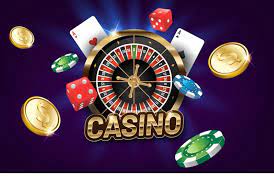Casinos have long held a unique position in the world of entertainment and leisure, offering a blend of excitement, luxury, and tombolbet88. These sprawling complexes, adorned with dazzling lights and filled with the sounds of clinking coins and spinning roulette wheels, draw millions of visitors each year, all seeking their shot at fortune and thrill. But behind the glitz and glamour lie a multitude of complexities, ranging from economic impacts to social issues and addiction concerns.
A Haven of Entertainment
For many, a trip to the casino is a chance to escape the monotony of daily life and indulge in a world of opulence and possibility. From the classic allure of the blackjack table to the mesmerizing allure of the slot machines, there’s something for everyone in these vast gaming palaces. The atmosphere is electric, with anticipation hanging in the air as players eagerly await the outcome of their bets.
Beyond the gaming floors, casinos offer a plethora of amenities designed to pamper their guests. Lavish hotels, gourmet restaurants, world-class entertainment venues, and luxurious spas cater to every whim, ensuring that visitors are immersed in a truly unforgettable experience.
Economic Impact
The economic impact of casinos cannot be overstated. In many regions, these establishments serve as major drivers of tourism and revenue generation. They create jobs, stimulate local businesses, and contribute substantial tax revenues to government coffers. In destinations like Las Vegas and Macau, casinos are the lifeblood of the economy, drawing visitors from around the globe and fueling a thriving hospitality industry.
However, the reliance on gambling revenue can also be a double-edged sword. Economic downturns or shifts in consumer behavior can have significant ramifications for casino-dependent economies, leading to job losses and financial instability.
Social Implications
Despite their allure, casinos are not without their critics. Concerns about problem gambling and addiction loom large, with studies indicating that a significant portion of casino revenue comes from a small percentage of frequent gamblers. The accessibility of gambling opportunities, combined with the allure of potential winnings, can create a dangerous cycle of dependence for vulnerable individuals.
Furthermore, casinos have been linked to a range of social issues, including crime, bankruptcy, and family breakdown. While proponents argue that strict regulations and responsible gaming initiatives mitigate these risks, skeptics maintain that the very nature of the industry encourages excessive risk-taking and preys on the weaknesses of its patrons.
Regulation and Responsibility
In response to these concerns, governments and regulatory bodies have implemented a variety of measures aimed at promoting responsible gaming and minimizing harm. These may include mandatory age restrictions, limits on betting amounts, self-exclusion programs, and funding for problem gambling treatment and prevention services.
Casino operators themselves have also taken steps to demonstrate their commitment to responsible gaming practices. Many establishments employ trained staff to identify and assist problem gamblers, offer resources for seeking help, and implement technology-based tools to monitor and limit gambling behavior.
